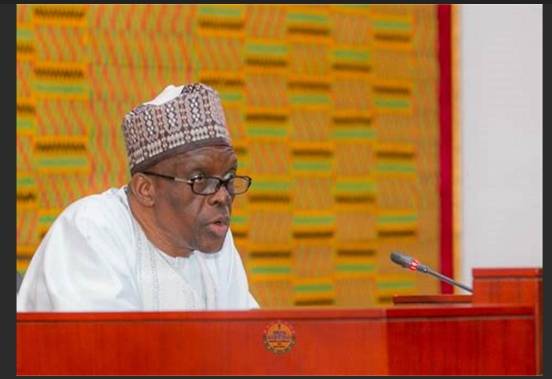Ghana's Supreme Court recently issued a ruling that has reverberated through the country's political landscape, nullifying Speaker Alban Bagbin’s decision to declare four parliamentary seats vacant. This verdict has triggered a renewed focus on the delicate balance of power among Ghana’s constitutional bodies, raising important questions about the role of the judiciary in influencing parliamentary operations.
The Controversial Decision
The case began when Speaker Bagbin declared four parliamentary seats vacant, citing absences and alleged breaches of parliamentary rules by the affected Members of Parliament (MPs). The Speaker’s decision was met with strong objections, primarily from the New Patriotic Party (NPP), who argued that the declaration was procedurally inappropriate and could jeopardize parliamentary representation. Bagbin’s supporters, on the other hand, viewed the move as an effort to uphold discipline within the legislative body and ensure MPs fulfill their mandates responsibly.
The Supreme Court's subsequent ruling invalidated the Speaker's action, deeming it unconstitutional. The court emphasized that such declarations must adhere strictly to established constitutional procedures. This ruling not only underscores the importance of procedural clarity in parliamentary operations but also highlights the judiciary's role in maintaining checks and balances.
Political Ramifications
The ruling has significant implications for Ghana's political landscape, especially as the country approaches the 2024 general elections. The decision is perceived by some political analysts as a setback for the Speaker, a key figure in the opposition National Democratic Congress (NDC), and a potential boost for the NPP, which has been vocal in contesting the decision.
Political commentators have noted that this legal battle reflects broader political tensions, with both major parties seeking to position themselves advantageously ahead of the elections. The ruling has intensified partisan rhetoric, with the NDC expressing concerns over what it sees as judicial overreach, while the NPP celebrates the court’s reaffirmation of constitutional processes.
Implications for Separation of Powers
At the heart of the controversy is the principle of separation of powers. Ghana’s political structure is built on a system that seeks to prevent any one branch of government from overstepping its bounds. This ruling underscores the judiciary's power to check parliamentary decisions, reaffirming its role as a guardian of constitutional adherence. However, critics worry that the judiciary's involvement in parliamentary matters could set a precedent for increased judicial scrutiny of legislative processes, potentially stifling the independence of the legislative branch.
Moving Forward
The fallout from the Supreme Court's decision is likely to influence parliamentary proceedings and the broader political discourse in Ghana. As the 2024 elections draw nearer, the ruling may serve as a litmus test for how constitutional disputes are managed within the country’s democratic framework. Both parties must navigate the challenges of building public trust while maintaining adherence to constitutional norms.
In conclusion, the Supreme Court's ruling on the vacant parliamentary seats has underscored the complexity and challenges of democratic governance in Ghana. It has highlighted the intricate dance between law, politics, and governance, serving as a reminder of the importance of upholding constitutional principles while fostering constructive political engagement. The coming months will reveal how Ghana's political players adapt to this ruling and whether it fosters dialogue or deepens political divides as the nation prepares for its next electoral milestone.



No comments yet
Be the first to share your thoughts!